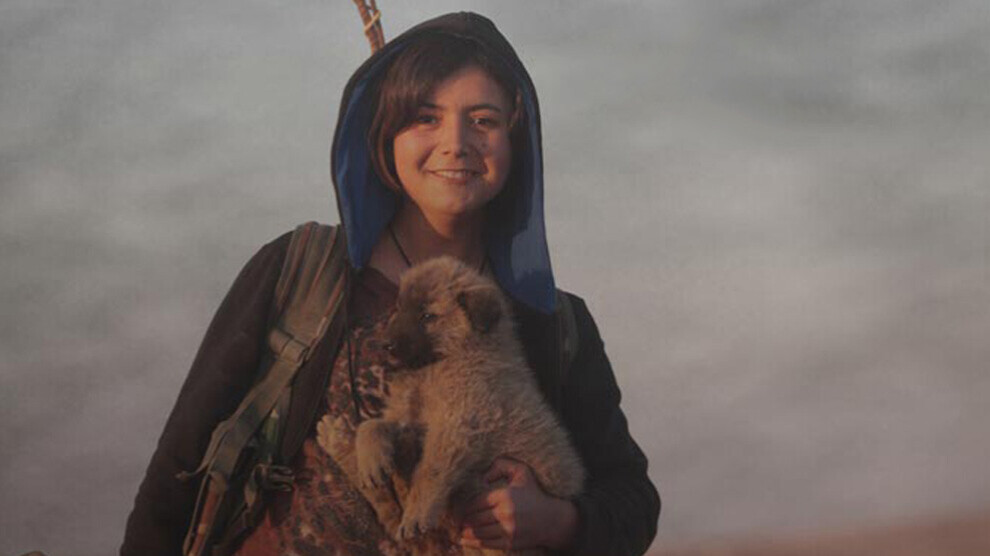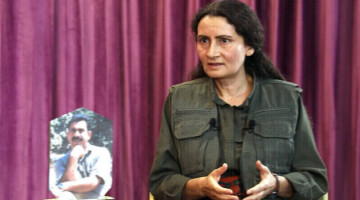Kurdish filmmaker Veysi Altay has been sentenced to imprisonment in Batman for his documentary "Nû Jîn". The charge was "terrorist propaganda," based on the movie poster. Dicle Anter, the former director of the Yılmaz Güney cinema where the film was shown, was also convicted.
Nû Jîn is a documentary that deals with the resistance in Kobanê against the terrorist organization Islamic State in 2014 from the perspective of women. “Women mean life. Life means resistance and resistance means Kobanê”, that is the central idea with which director Veysi Altay describes his documentary. It portrays the everyday life of three Kurdish women fighters in the face of an IS attack on 14 September 2014. The three joined the Women's Defense Units YPJ and fought together with the YPG against the advance of ISIS.
The Batman public prosecutor, however, sees the film poster for Nû Jîn as a criminal offense because one of the three YPJ fighters can be seen with the YPG flag. According to the indictment, the poster helps to "positively portray" a terrorist organization.
Film about an existing reality
“I made a film about an existing reality. My camera only captured what was happening in Kobanê at the time,” said director Veysi Altay in his defense. He rejected the allegation of terrorist propaganda. Only a scene from the film can be seen on the poster. "When the film was shown in Batman, there were police officers in the cinema, but they could not identify any criminal offense," said Altay.
Dicle Anter described the motive of the prosecution as "illegalizing a documentary", albeit at a local level. Nû Jîn had been shown in a number of cities, but investigations had only taken place in Batman. Anter, who is the son of Kurdish intellectual and writer Musa Anter, who was murdered by the Turkish counter-guerrillas in 1992, ran the cinema in Batman, named after the pioneer of Kurdish cinema, Yılmaz Güney, and founded in 2005. After the pseudo-coup attempt in summer 2016, Anter was dismissed from the civil service by emergency decree.
One of the first official acts of the state-appointed trustee, who was sent to the city to replace the democratically and freely elected mayor, was the closure of the cinema. The trustee did not allow the renovation of the building, previously ordered by the DBP-led city administration, to be carried out. At the end of January 2017, there was allegedly a short circuit in the electronic equipment of the closed cinema. The building was almost completely burned and was demolished. The forced administration wanted to build a mosque in the area and called for a referendum, but received a slap in the face from the city's residents.
But even after the trustee lost his place in March 2019, the city administration, now governed by the HDP, was unable to implement the project for the construction of a new cinema for Batman, which was started shortly after the local elections. Just a few months later, the mayors of Kurdish cities were once again expelled by decree, and trustees appointed by the Turkish Ministry of the Interior are again governing many cities. The site where the Yılmaz Güney cinema used to be has been integrated into an urban park. At last, it was said that a fountain should be built on the place when the cinema once was.
Background to the case
Veysi Altay and Dicle Anter were charged for the first time in April 2018. Less than a year later, they were sentenced to two and a half years in prison by a criminal court in Batman. This decision was appealed and the court overturned the judgment and ordered the reopening of the proceedings. The trial had already been running since June 2020. Now Dicle Anter has been sentenced to ten months in prison, a sentence converted into a fine of around 600 euros. Director Veysi Altay was sentenced to one year and fifteen days in prison, suspended on probation. The travel ban against both men was lifted.














